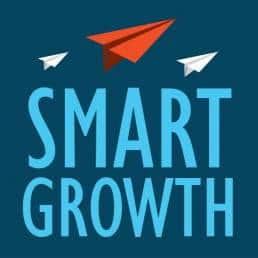



Media and tech experts make us believe that artificial intelligence (AI) is going to affect all aspects of our lives, especially in business. Already, its use is visible in manufacturing processes, HR, supply chain, marketing, and so on. Are companies relying on it more and more to improve performance? Will SMEs be better off using AI in marketing, and resolve the talent crunch they face?
As technology invades the marketing and branding functions, businesses need to un-learn many things and learn new ways of looking at managing these functions. While AI has undoubtedly brought about efficiency and personalisation, it is crucial to recognise that the human element remains an indispensable aspect of effective marketing and branding. Here are some pointers:
The power of personalised interaction: AI-driven algorithms can analyse vast amounts of data to craft marketing messages and predict consumer behaviour. However, true personalisation goes beyond data points. SMEs like "The Book Nook," a quaint, independent bookstore, exemplify this principle. By cultivating a strong sense of community, and hosting book clubs and author meet-ups, the store offers an experience that AI cannot replicate. Customers feel seen and valued, which leads to brand loyalty that transcends transactional interactions.
Storytelling that resonates: Human connection thrives on storytelling. Successful brands seamlessly integrate their narratives into their marketing efforts. Consider the example of TOMS, a well-known shoe company. With its "One for One" campaign, it doesn't just sell shoes; it tells a story of compassion and social impact. For every pair of shoes sold, a pair is donated to a child in need. This narrative resonates emotionally with consumers, turning them into brand advocates.
Engagement through emotional intelligence: AI can process emotions based on text and data, but human interaction is inherently more nuanced. Brands that excel in emotional intelligence stand out. Dove's "Real Beauty" campaign, which encourages self-esteem and challenges conventional beauty standards, strikes an emotional chord. By tapping into societal issues, Dove establishes itself as a brand that understands and cares about its consumers at a deep level.
Community building and trust: Communities build trust, and trust is a cornerstone of successful branding. SMEs like "EcoHome," a sustainable-living concept store, create communities around shared values. Through workshops on eco-friendly living, they establish themselves as thought leaders and authorities, while nurturing relationships. Customers trust their expertise and authenticity, making them the go-to destination for sustainable products.
Two-way conversations: Marketing cannot be, and should not be, a one-way street as it used to be. Brands that actively listen and engage in meaningful conversations will flourish. Wendy's, a fast-food chain, stands out for its witty and humorous responses on social media. By engaging with customers on their terms, Wendy's transforms interactions into memorable experiences, helping brand recall.
Empathy in crisis management: Crises are inevitable, and how brands handle them defines their character. The human element shines during challenging times. Airbnb's responses during Covid show their deep empathy. The company focussed on flexible cancellations and support for hosts, demonstrating a genuine concern for the wellbeing of their community — both customers and hosts.

While AI and other such technologies are invaluable tools, they are most potent when complemented by the essential human element. SMEs and global brands alike have harnessed the power of tech tools with human intervention to drive growth and profitability.
Here are some examples of global giants that utilise AI in their marketing strategies, but also recognise the importance of human intervention to drive better branding:
Netflix employs AI algorithms to recommend shows and movies to its users based on their viewing history and preferences. However, the OTT also recognises the significance of human curation. The "Netflix Editors Picks" section is an example of this intervention, where a team of experts handpick content to highlight noteworthy shows or films. This approach is a personal touch and helps users discover content that might not be captured by algorithms alone.
Amazon's product recommendations are powered by AI that analyse a user’s browsing and purchase history. However, it also recognises the importance of human selection in its "Amazon's Choice" sections, etc. These selections are influenced by expert opinion and customer feedback, adding credibility and trust.
HubSpot, a marketing automation platform, integrates AI into its tools for lead scoring, email customisation, and content recommendations. However, they understand that marketing is about building relationships. Their "Conversations" tool enables real-time interactions with website visitors, allowing human representatives to engage in conversations and build rapport.
Facebook was one of the early users of AI for targeted advertising and content recommendation. Nevertheless, the platform also emphasises the role of human interaction in building authentic connections. The "Live" feature encourages users and brands to host live video broadcasts, enabling engagement and direct communication with audiences.
As marketing and branding continue to evolve, the fusion of human connection and technological innovation will remain the driving force behind enduring success.
Discover the latest Business News, Sensex, and Nifty updates. Obtain Personal Finance insights, tax queries, and expert opinions on Moneycontrol or download the Moneycontrol App to stay updated!